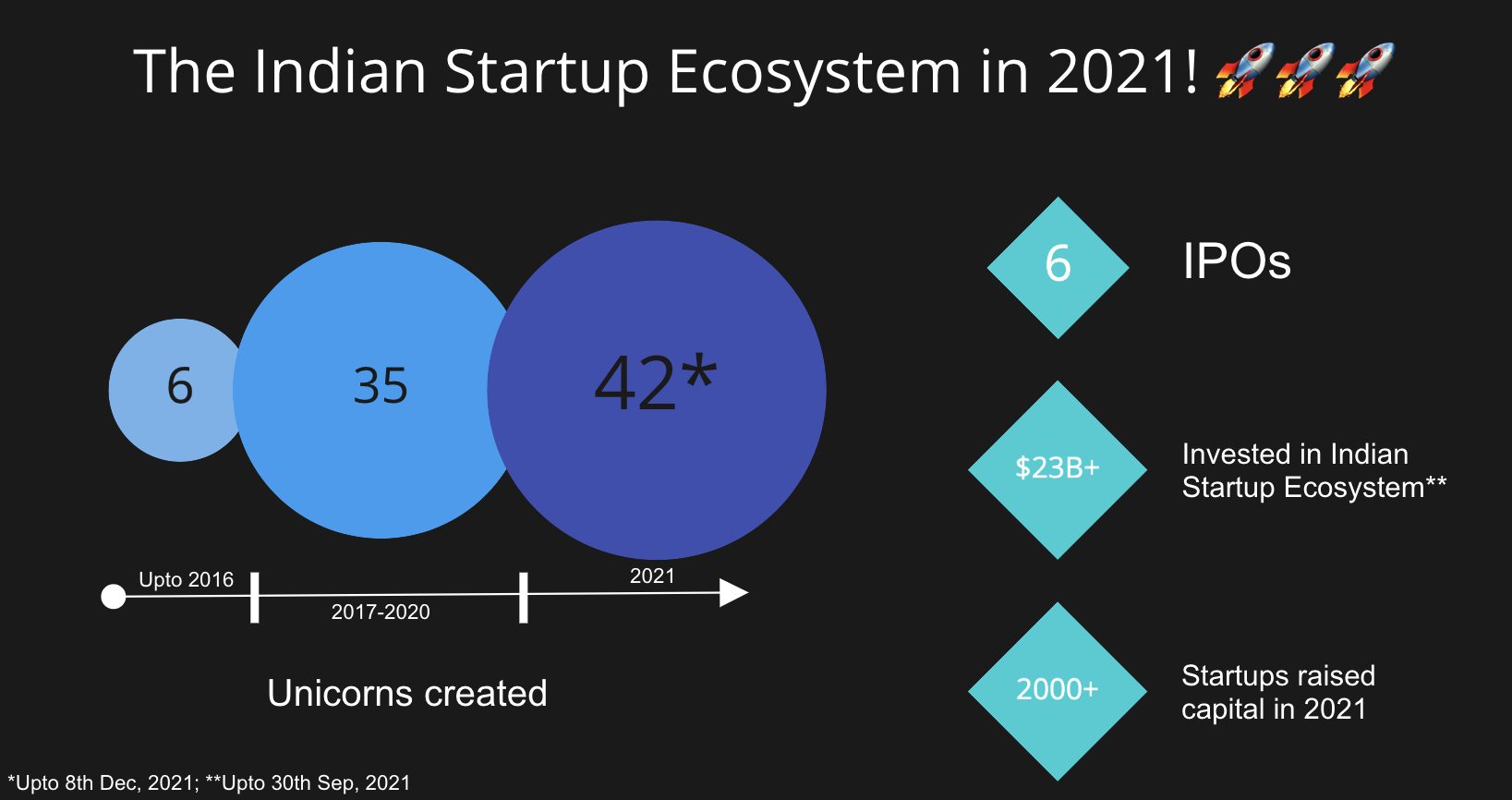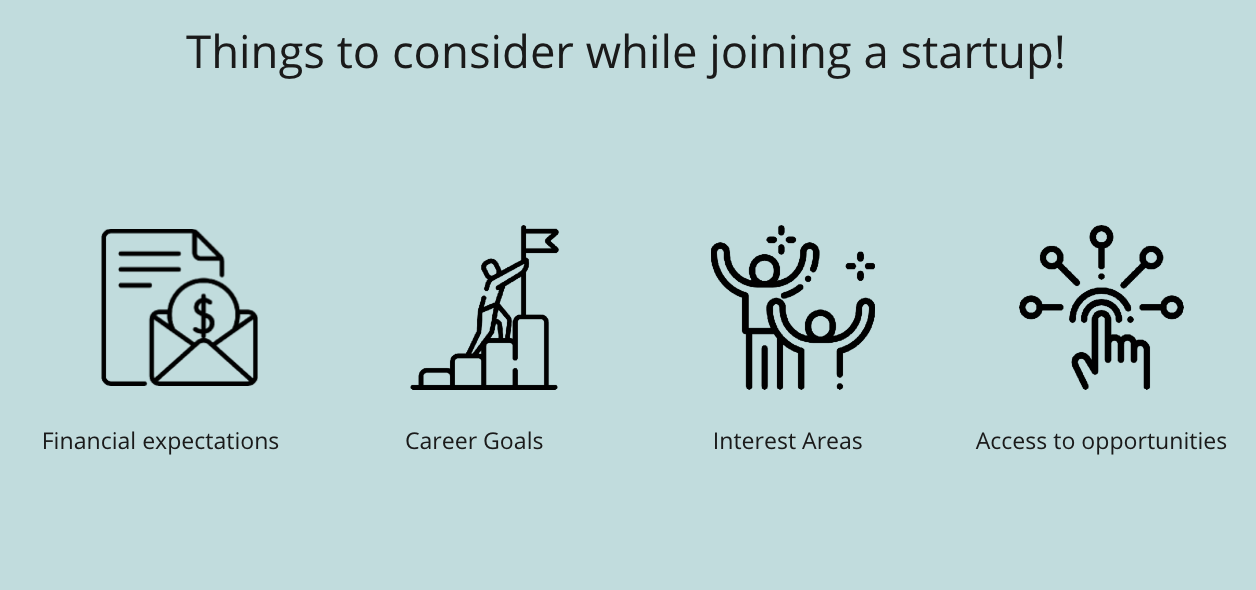
Why joining a startup is the best choice you can make today?
In this short write-up, I'll answer two questions: Why join a startup and why today?
Why join a startup?
Real-life story: In 2015, two of my close friends, Rahul & Aditya - joined different startups as early employees. The startup where Rahul joined became a 🦄 last year, and today he leads a large team at the startup + has some great financial returns.
Aditya's startup didn't grow much. But in the four years that he spent there, Aditya actively took up different roles in marketing, operations and product. The company was recently acquired, and today, he is a business head at the parent entity!
While extraordinary financial returns are not assured, exceptional personal growth comes from working in startups!
It doesn't matter if you're working at a large tech firm like Facebook, an excellent consulting firm like Mckinsey or a finance giant like Goldman Sachs; there are more than a few reasons you should consider moving to startups.
It was the best decision I took back in 2017.
Sometimes decisions feel irrational from a cosy seat, but reiterating the top 3 reasons in my mind for moving to a startup:
- Steep learning: 20 years of personal and professional growth in 4 years. (Phrase Courtesy: Karan Bajaj)
- Better risk-reward outcome: The upside is quite significant, and even the downside is protected in the long run. (Case-in-point: Aditya)
- Contagious Culture: You work with more energetic, ambitious and high-ownership people. Remember, you end up becoming the average of the five people you spend the most time with.
Now to the next question.
Why now?
The startup ecosystem in India is here to stay!

Things have changed drastically in the last few years. Driven by multiple black swan events like demonetisation and covid-19, digital products & technology adoption has seen a significant uplift. The belief in the market - by investors, consumers and employees alike, has deepened significantly.
While there is a lot of chatter about this being a (startup) ‘bubble’, a closer look at most of these companies will tell you that real revenue, real growth, and a real revolution in India is underway. - Deepinder Goyal, Founder & CEO, Zomato.
Fun Fact: Less than 500 companies in the Indian stock market with more than $1Bn market capital. So if a company is valued as a unicorn by an investor, they believe it's amongst the top 500 companies in India or believes that it will be soon.
Time for another story ...!
Real-life story: I have a very smart, structured, and risk-averse friend. Last month, she joined a Series B startup that hadn't even started making money.
I was surprised and asked her what had changed?
She said, "Sid, teen saal see bade startup mei kaam kar liya. Isme potential dikh raha hai agle 5 saal kaam karne ka!" (Sid, I've been working at a very large startup for three years. I can see that this young startup is solving a real problem quite well, and it will do great for the next five years!)
Of course, her risk-reward equation also changed quite significantly. 😉
There exists a startup that can meet your constraints.
I agree that the picture is not always rosy with startups and many things need to be considered while deciding what works best for you - your risk appetite, career goals, pay expectations, and interest areas.

Despite all of these, you can always find a startup that would be an ideal match for you :)
I know there’s a ton of news every day about different startups, and deciding which one fits best for you might be difficult. So how do you go about it?

I’m working on a simplified framework on how to evaluate startup opportunities.
If you’re interested in it, continue reading!




Comments